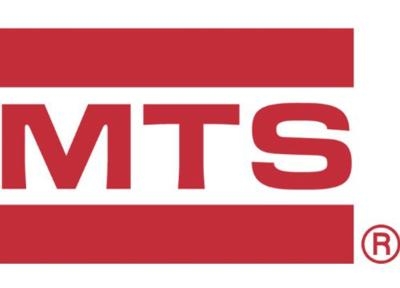Tue, Jul 22, 2014
Test System Used By Snecma In Evaluation Of LEAP Turbofans
MTS Systems Corporation ... a supplier of high-performance test systems and position sensors, recently delivered a state-of-the-art test system to French aircraft engine manufacturer Snecma (Safran). The test system is being used for highly complex testing and certification of fan blades made from advanced composite materials for the next-generation LEAP turbofan. The new engine is designed to deliver significantly cleaner, quieter and more fuel-efficient performance than current jet engine designs.

The LEAP engine was developed by CFM International, a joint company between Snecma (Safran) and General Electric. It is the successor engine for the CFM56 line and is slated to equip the Airbus A320neo and Boeing 737 MAX aircraft, among others.
The MTS test system is engineered to simulate the dynamic forces experienced by fan blades in a real-world jet engine operating environment. The system comprises a high-force servo-hydraulic load frame outfitted with a unique configuration of vertical and lateral actuators capable of accurately replicating the combination of forces.
According to Dr. Mike Jost, Senior Vice President and General Manager of MTS Test, developing the Snecma test system posed unique engineering challenges. "The test program requires that fan blade specimens be subjected to 1.4 million load cycles over the course of six months. Adding to this challenge, Snecma required that this high-frequency system also be adaptable to test blade sizes and geometries beyond those required by the first application program. To meet these aggressive test requirements, we engineered a custom test solution to provide precise control of complex forces and motions at high frequencies."
"The new LEAP jet engine promises to lower fuel consumption and emissions by 15 percent when compared to today's engines, saving fuel and reducing the impact on our environment," said Dr. Jeffrey Graves, President and Chief Executive Officer of MTS Systems Corporation. "Our close collaboration with Snecma in the development of this next-generation technology exemplifies the pivotal role MTS technology can play in meeting one of the key challenges of our time – building a cleaner, more fuel-efficient global transportation infrastructure."
More News
Option Approach An approach requested and conducted by a pilot which will result in either a touch-and-go, missed approach, low approach, stop-and-go, or full stop landing. Pilots >[...]
"Emirates is already the world's largest Boeing 777 operator, and we are expanding our commitment to the program today with additional orders for 65 Boeing 777-9s. This is a long-t>[...]
(Pilot) Reported That There Was A Sudden And Violent Vibration Throughout The Airplane That Lasted Several Seconds Analysis: The pilot was returning to his home airport at an altit>[...]
“This recognition was evident during the TBMOPA Annual Convention, where owners and operators clearly expressed their satisfaction with our focus on customer service, and enc>[...]
Overhead Maneuver A series of predetermined maneuvers prescribed for aircraft (often in formation) for entry into the visual flight rules (VFR) traffic pattern and to proceed to a >[...]
 ANN's Daily Aero-Term (11.19.25): Option Approach
ANN's Daily Aero-Term (11.19.25): Option Approach Aero-News: Quote of the Day (11.19.25)
Aero-News: Quote of the Day (11.19.25) NTSB Final Report: Sting Sport TL-2000
NTSB Final Report: Sting Sport TL-2000 Aero-News: Quote of the Day (11.20.25)
Aero-News: Quote of the Day (11.20.25) ANN's Daily Aero-Term (11.20.25): Overhead Maneuver
ANN's Daily Aero-Term (11.20.25): Overhead Maneuver



